IT CAME FROM NETFLIX! Centurion — Blue Ink Alchemy

[audio:http://www.blueinkalchemy.com/uploads/centurion.mp3]
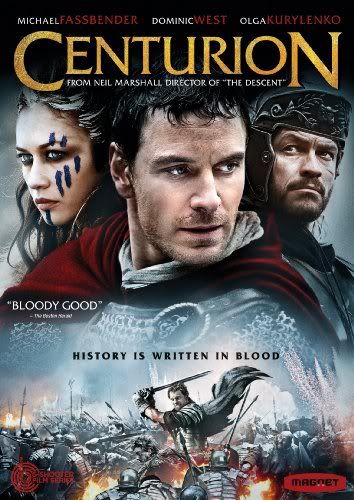
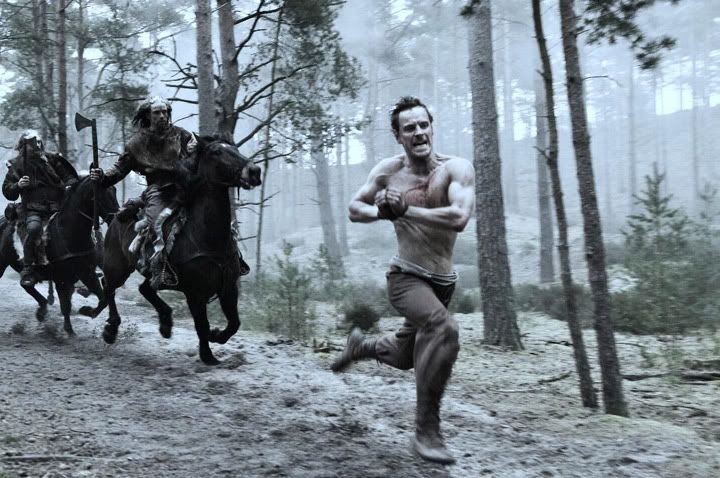
With those metal weapons, Magneto would have sorted the Picts out in about 3 seconds flat.

Trust me. She's pretty scary.
Blue Ink Alchemy






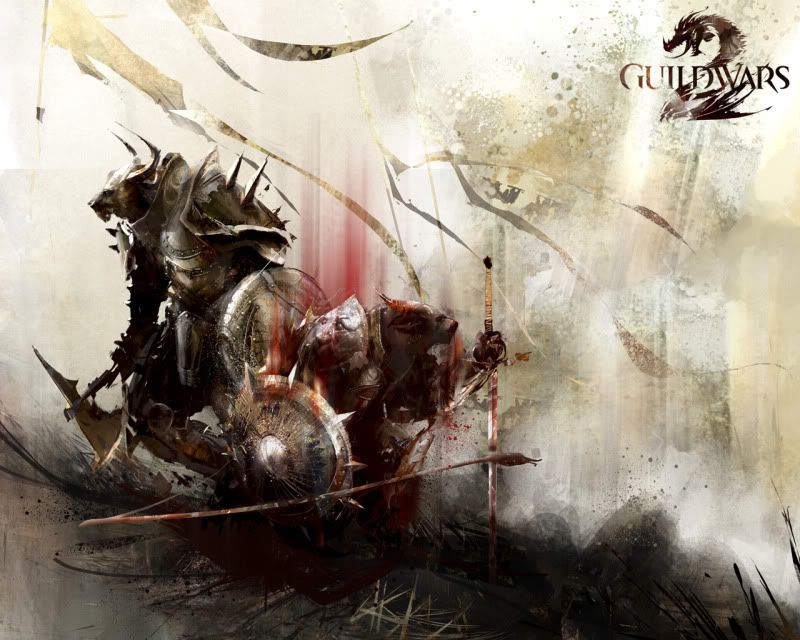




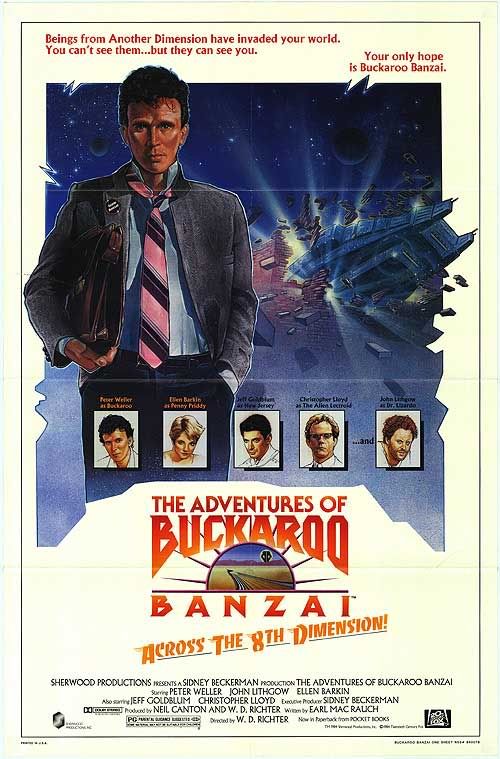

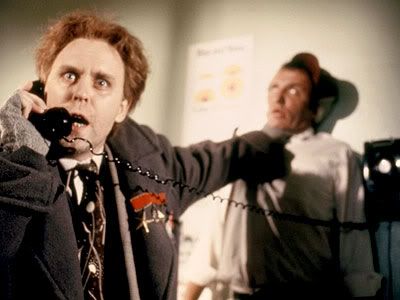
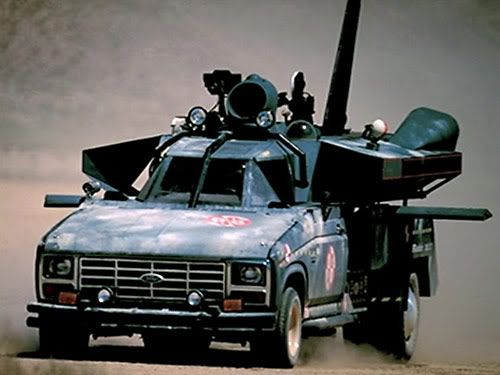
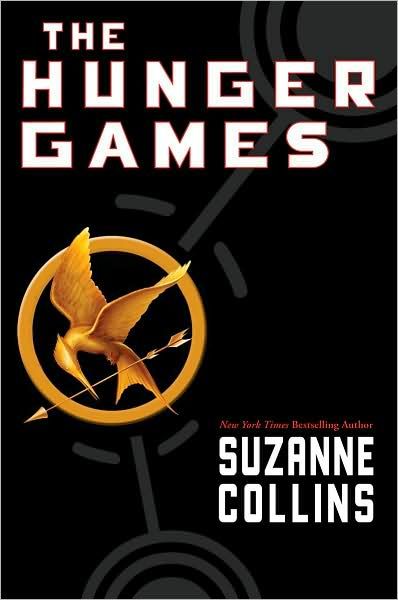


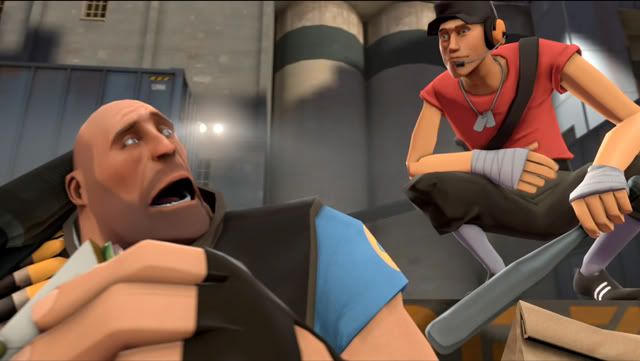


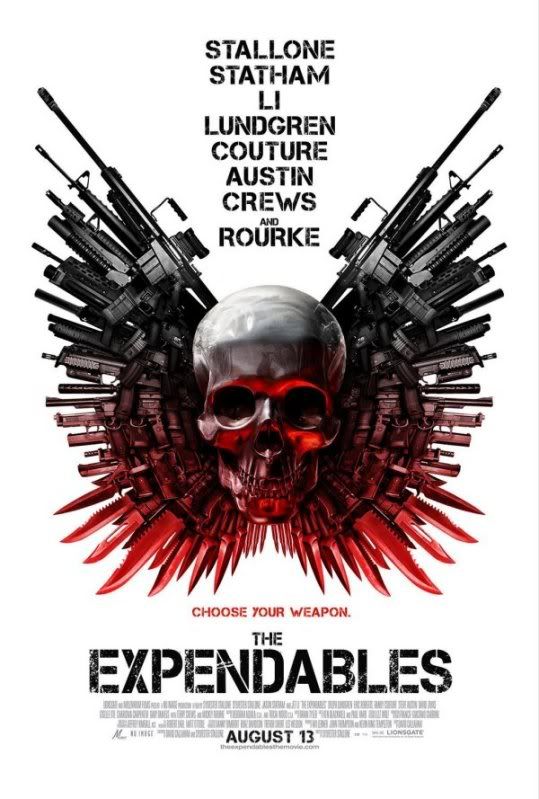

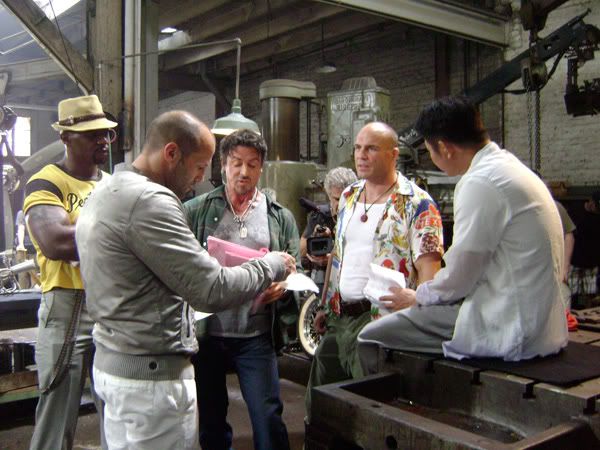
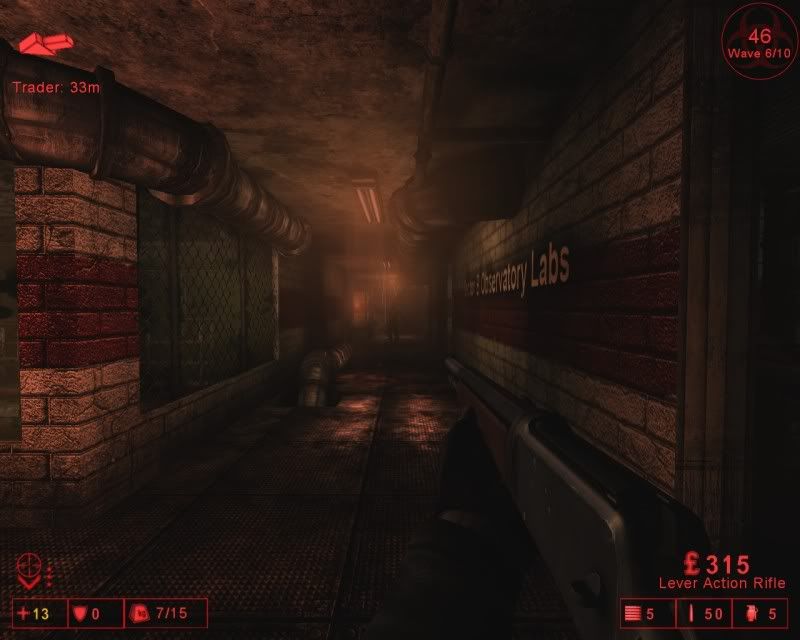

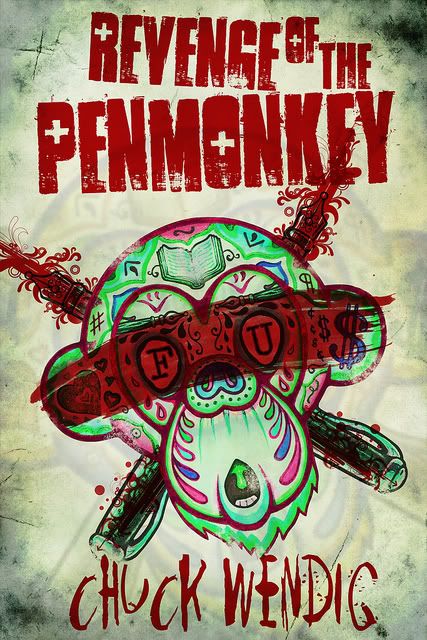
 You know those books about writing out there? Novels and Groupies for Dummies? The Idiot's Guide To Being The Next Stephen King? How I Did It by Stephenie Meyer? That's amateur hour. Kiddie stuff. On the battlefield of serious writing, where the freelancers struggle every day to make something happen, to feed themselves through words, to put bloody words on the page, they're the armchair generals. Chuck Wendig, on the other hand, is down in the trenches, right next to you, asking why in the hell you weren't issued booze and an iPad along with the spades to dig your foxholes. Revenge of the Penmonkey is the third book of writing advice he's put on Kindles, and the veteran status of his work shows. This is a guy who's been through the wringer. He's struggled, hand over hand, one word at a time, to carve out his own place as a storyteller and an iconoclast. He doesn't just show you how to make it as a novelist, short story writer, freelance penmonkey and menace to society - he shows you why. He gives you a "day in the life" entry that puts any office experience to shame. He explains in exhausting, knuckle-popping detail why your action scenes need to jump up, crane-kick and actually mean something. He shows you why self-publishing that limp piece of purple prose in your hand is a really, really bad idea. And he explains why he can say as much as he does with as much authority as he does. He's been there, man. He's seen the enemy. Looked it in the eyeballs. And it's us. Read between the lines of Revenge of the Penmonkey, moreso than his first two advice books, and you'll see what Chuck is really trying to tell us, what he wants to scream at us while shaking us by the lapels: Snap out of it. The words won't write themselves. Nobody can tell your stories but you. Forget the fact that the market's flush with the kind of thing you want to do. You can do it better. You can. But you have to take the first step. Write the words. Make the magic happen. Get off your ass. DO SOMETHING. The fact that he laces his heartfelt plea with anecdotes, the praises of gin and bucketloads of profanity is, really, just icing on the cake.
You know those books about writing out there? Novels and Groupies for Dummies? The Idiot's Guide To Being The Next Stephen King? How I Did It by Stephenie Meyer? That's amateur hour. Kiddie stuff. On the battlefield of serious writing, where the freelancers struggle every day to make something happen, to feed themselves through words, to put bloody words on the page, they're the armchair generals. Chuck Wendig, on the other hand, is down in the trenches, right next to you, asking why in the hell you weren't issued booze and an iPad along with the spades to dig your foxholes. Revenge of the Penmonkey is the third book of writing advice he's put on Kindles, and the veteran status of his work shows. This is a guy who's been through the wringer. He's struggled, hand over hand, one word at a time, to carve out his own place as a storyteller and an iconoclast. He doesn't just show you how to make it as a novelist, short story writer, freelance penmonkey and menace to society - he shows you why. He gives you a "day in the life" entry that puts any office experience to shame. He explains in exhausting, knuckle-popping detail why your action scenes need to jump up, crane-kick and actually mean something. He shows you why self-publishing that limp piece of purple prose in your hand is a really, really bad idea. And he explains why he can say as much as he does with as much authority as he does. He's been there, man. He's seen the enemy. Looked it in the eyeballs. And it's us. Read between the lines of Revenge of the Penmonkey, moreso than his first two advice books, and you'll see what Chuck is really trying to tell us, what he wants to scream at us while shaking us by the lapels: Snap out of it. The words won't write themselves. Nobody can tell your stories but you. Forget the fact that the market's flush with the kind of thing you want to do. You can do it better. You can. But you have to take the first step. Write the words. Make the magic happen. Get off your ass. DO SOMETHING. The fact that he laces his heartfelt plea with anecdotes, the praises of gin and bucketloads of profanity is, really, just icing on the cake. You know those books about writing out there? Novels and Groupies for Dummies? The Idiot's Guide To Being The Next Stephen King? How I Did It by Stephenie Meyer? That's amateur hour. Kiddie stuff. On the battlefield of serious writing, where the freelancers struggle every day to make something happen, to feed themselves through words, to put bloody words on the page, they're the armchair generals. Chuck Wendig, on the other hand, is down in the trenches, right next to you, asking why in the hell you weren't issued booze and an iPad along with the spades to dig your foxholes. Revenge of the Penmonkey is the third book of writing advice he's put on Kindles, and the veteran status of his work shows. This is a guy who's been through the wringer. He's struggled, hand over hand, one word at a time, to carve out his own place as a storyteller and an iconoclast. He doesn't just show you how to make it as a novelist, short story writer, freelance penmonkey and menace to society - he shows you why. He gives you a "day in the life" entry that puts any office experience to shame. He explains in exhausting, knuckle-popping detail why your action scenes need to pop and actually mean something. He shows you why self-publishing that limp piece of purple prose in your hand is a really, really bad idea. And he explains why he can say as much as he does with as much authority as he does. He's been there, man. He's seen the enemy. Looked it in the eyeballs. And it's us. Read between the lines of Revenge of the Penmonkey, moreso than his first two advice books, and you'll see what Chuck is really trying to tell us, what he wants to scream at us while shaking us by the lapels: Snap out of it. The words won't write themselves. Nobody can tell your stories but you. Forget the fact that the market's flush with the kind of thing you want to do. You can do it better. You can. But you have to take the first step. Write the words. Make the magic happen. Get off your ass. DO SOMETHING. The fact that he laces his heartfelt plea with anecdotes, the praises of gin and bucketloads of profanity is, really, just icing on the cake.
You know those books about writing out there? Novels and Groupies for Dummies? The Idiot's Guide To Being The Next Stephen King? How I Did It by Stephenie Meyer? That's amateur hour. Kiddie stuff. On the battlefield of serious writing, where the freelancers struggle every day to make something happen, to feed themselves through words, to put bloody words on the page, they're the armchair generals. Chuck Wendig, on the other hand, is down in the trenches, right next to you, asking why in the hell you weren't issued booze and an iPad along with the spades to dig your foxholes. Revenge of the Penmonkey is the third book of writing advice he's put on Kindles, and the veteran status of his work shows. This is a guy who's been through the wringer. He's struggled, hand over hand, one word at a time, to carve out his own place as a storyteller and an iconoclast. He doesn't just show you how to make it as a novelist, short story writer, freelance penmonkey and menace to society - he shows you why. He gives you a "day in the life" entry that puts any office experience to shame. He explains in exhausting, knuckle-popping detail why your action scenes need to pop and actually mean something. He shows you why self-publishing that limp piece of purple prose in your hand is a really, really bad idea. And he explains why he can say as much as he does with as much authority as he does. He's been there, man. He's seen the enemy. Looked it in the eyeballs. And it's us. Read between the lines of Revenge of the Penmonkey, moreso than his first two advice books, and you'll see what Chuck is really trying to tell us, what he wants to scream at us while shaking us by the lapels: Snap out of it. The words won't write themselves. Nobody can tell your stories but you. Forget the fact that the market's flush with the kind of thing you want to do. You can do it better. You can. But you have to take the first step. Write the words. Make the magic happen. Get off your ass. DO SOMETHING. The fact that he laces his heartfelt plea with anecdotes, the praises of gin and bucketloads of profanity is, really, just icing on the cake.




"Do not concern yourself with my origin, my race, or my ancestry. Seek my record in the pits, and then make your wager."My sister told me that she, her husband and some friends had been putting together mono-colored Commander decks to play against one another. In the same conversation, she reminded me of how much she loathes control decks. I remembered that in my old (and reviled) Chronomancy deck, one of the wizards I played was a legend named Arcanis the Omnipotent.


"Do not concern yourself with my origin, my race, or my ancestry. Seek my record in the pits, and then make your wager."My sister told me that she, her husband and some friends had been putting together mono-colored Commander decks to play against one another. In the same conversation, she reminded me of how much she loathes control decks. I remembered that in my old (and reviled) Chronomancy deck, one of the wizards I played was a legend named Arcanis the Omnipotent.